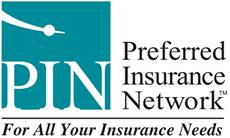You may think your small business is immune to the risks that come with not having liability insurance, but the truth is, no business is completely safe. Imagine facing a lawsuit that could wipe out everything you’ve worked so hard to build. Liability insurance is not just a safety net; it’s a critical tool in protecting your business from unforeseen disasters. So, what exactly makes this type of insurance indispensable, even for small businesses like yours?
Explore Our Collection – Browse our latest offerings and shop with confidence.
Explore Now
Key Takeaways
- Liability insurance protects against financial losses from claims.
- Essential for all business sizes, including small enterprises.
- Covers legal fees, settlements, and damages.
- Enhances credibility with clients and partners.
- Required by some contracts and regulations.
Types of Liability Risks
Liability risks come in various forms and can pose significant threats to your business operations.
One common type is product liability, where your business could be held responsible for any harm caused by a defective product. This risk is especially prevalent if your company manufactures or sells physical goods.
Another important liability risk is public liability, which covers damages or injuries to third parties that occur on your business premises or as a result of your operations. It’s crucial to have measures in place to protect against this type of risk.
Additionally, professional liability, also known as errors and omissions insurance, safeguards your business from claims related to services provided. This is particularly relevant for businesses that offer professional services such as consulting or advising.
Legal Protection
To safeguard your business against potential legal challenges, it’s essential to establish solid legal protection measures.
Legal protection involves setting up contracts, terms of service, and privacy policies that clearly outline your business’s rights and responsibilities. These documents can help prevent misunderstandings and protect your business in case of disputes.
Additionally, having a business structure, such as an LLC or corporation, can provide a level of legal protection by separating your personal assets from your business liabilities.
Another crucial aspect of legal protection is obtaining the right liability insurance coverage.
General liability insurance can protect your business from third-party claims of bodily injury, property damage, and advertising injury.
Professional liability insurance, also known as errors and omissions insurance, can safeguard your business from claims of negligence or inadequate work.
Financial Safeguard
Securing the financial safeguard of your business is paramount to its long-term success. As a business owner, you face various risks that could potentially lead to financial losses. Liability insurance provides a crucial layer of protection by covering expenses related to legal claims or lawsuits.
Without this coverage, your business could be vulnerable to significant financial hardships in the event of an unforeseen incident. Having liability insurance in place ensures that you have a safety net to fall back on when faced with costly legal proceedings or damages.
Whether it’s a customer slipping and falling on your premises or a product malfunction leading to injury, the financial implications can be substantial. By having the right liability insurance policy, you can mitigate these risks and protect your business’s financial stability.
In today’s litigious society, having a financial safeguard in the form of liability insurance isn’t just a recommendation; it’s a necessity for businesses of all sizes.
Don’t wait until it’s too late – invest in liability insurance to safeguard your business’s financial future.
Coverage Options
When considering insurance options for your business, exploring the various coverage options available is essential. Depending on your industry, size, and unique risks, different types of liability coverage may be more suitable for your business. Here are some common coverage options to consider:
| Coverage Type | Description | Suitable For |
|---|---|---|
| General Liability | Protects against third-party claims for bodily injury or property damage that occur on your premises or due to your operations. | Most businesses, especially those with physical locations. |
| Professional Liability | Also known as errors and omissions insurance, it covers claims related to professional services that result in financial loss. | Professionals like consultants, lawyers, and accountants. |
| Product Liability | Covers claims related to property damage or injury caused by a product you sell or manufacture. | Businesses involved in manufacturing or selling products. |
Understanding these coverage options is crucial to ensure your business is adequately protected from potential liabilities. It’s important to assess your specific needs and consult with an insurance professional to determine the best combination of coverage for your business.
Cost-Benefit Analysis
Considering the financial implications of liability insurance for your business is crucial in making informed decisions. While it may seem like an additional expense, the cost of liability insurance is often minimal compared to the potential risks and damages your business could face without it.
By investing in liability insurance, you’re essentially transferring the financial burden of potential lawsuits or claims to the insurance provider, protecting your assets and business operations.
In conducting a cost-benefit analysis, it’s important to weigh the premiums you’ll pay against the coverage and protection you’ll receive. In the event of a liability claim, the costs of legal fees, settlements, or medical expenses can quickly escalate, potentially leading to financial ruin for your business.
With liability insurance, you have the peace of mind knowing that you have a safety net in place to handle these unforeseen expenses.
Ultimately, the benefits of liability insurance far outweigh the costs, especially when considering the long-term financial stability and reputation of your business. It’s a proactive measure that can save you from significant financial losses down the line.
Common Misconceptions
Before making assumptions about liability insurance for your business, it’s important to address common misconceptions that may cloud your judgment.
One prevalent misconception is that liability insurance is only for large corporations facing significant risks. In reality, businesses of all sizes can benefit from liability coverage, as lawsuits can arise from various sources, such as employee accidents, customer injuries, or product defects.
Another misconception is that general liability insurance is enough to cover all potential risks. While general liability insurance is essential, it may not protect against all liabilities specific to your industry.
Additionally, some business owners believe that they’re personally shielded from liabilities by forming a limited liability company (LLC). However, this isn’t always the case, as certain circumstances can lead to personal assets being at risk.
Understanding these misconceptions can help you make informed decisions about the type and amount of liability insurance your business needs.
Importance of Coverage Limits
To ensure adequate protection for your business, understanding the importance of coverage limits in your liability insurance policy is crucial. Coverage limits determine the maximum amount an insurance company will pay for a covered claim.
It’s essential to carefully evaluate your business’s needs and potential risks to set appropriate coverage limits. Setting coverage limits too low could leave your business vulnerable to significant financial losses in the event of a claim exceeding the limits. On the other hand, excessively high coverage limits may lead to unnecessary premium costs.
Consider factors such as the nature of your business, the industry you operate in, and the potential risks involved. It’s advisable to consult with an insurance agent or broker who can help assess your specific needs and recommend suitable coverage limits.
Remember that coverage limits can vary depending on the type of liability insurance you purchase, such as general liability, professional liability, or product liability insurance. By setting the right coverage limits, you can protect your business effectively without overpaying for unnecessary coverage.
Choosing the Right Policy
Understanding the importance of coverage limits in your liability insurance policy sets the foundation for choosing the right policy for your business. When selecting a policy, consider the specific risks your business faces. Analyze the nature of your operations, the size of your business, and the potential liabilities you may encounter.
It’s crucial to ensure that the policy you choose adequately covers these risks to protect your business. Compare different insurance providers to find a policy that not only fits your budget but also offers comprehensive coverage. Look for a reputable provider with a track record of reliable customer service and prompt claims processing.
Consider seeking advice from an insurance broker who can help you navigate the complexities of liability insurance and find a policy tailored to your business’s needs.
Remember that the cheapest policy may not always provide sufficient coverage. Don’t compromise on coverage limits to save on premiums, as inadequate coverage could lead to financial losses in the event of a liability claim.
Prioritize finding a policy that offers the right balance of coverage and affordability to safeguard your business effectively.
Conclusion
So, whether you’re a small startup or a well-established company, liability insurance is a must-have to protect your business from potential risks and legal liabilities. Don’t wait until it’s too late to secure the coverage you need to stay afloat in the face of unforeseen events. Invest in liability insurance today and ensure the longevity and success of your business for years to come.
Frequently Asked Questions
What Happens if My Small Business Gets Sued for a Large Sum?
If your small business gets sued for a large sum, liability insurance can protect you financially. It covers legal fees, settlements, and judgments. Without it, you risk losing personal assets. Contact an insurance provider to ensure proper coverage.
Is Liability Insurance Mandatory for All Businesses?
Yes, liability insurance is not mandatory for all businesses. However, it’s highly recommended to protect your assets in case of lawsuits. It can provide financial coverage for legal costs and damages, ensuring your business stays afloat.
Can Liability Insurance Protect My Personal Assets?
Yes, liability insurance can protect your personal assets. It helps cover costs if your business is sued for things like injury or property damage. Without it, you could be personally responsible for legal fees and settlements.
Will Liability Insurance Cover Employee Injuries?
Yes, liability insurance typically covers employee injuries. It helps protect your business by providing financial assistance in case of employee accidents or injuries. Make sure to review your policy to understand the coverage specifics.
How Does Liability Insurance Differ From General Business Insurance?
Liability insurance specifically covers claims related to injury or property damage caused by your business operations. General business insurance, on the other hand, provides broader coverage for various risks such as property damage, theft, and business interruption.

